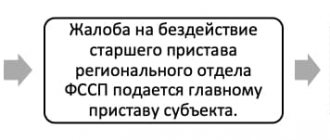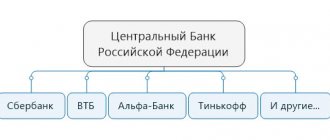How should an administrative complaint against a decision in an administrative case be formalized?
ATTENTION: our lawyers in administrative cases will help you draw up a complaint regarding a case of an administrative offense, and, if necessary, they will take up the procedure for appealing an administrative decision if you apply already at the stage when the decision on the case has taken place.
How to file a complaint in an administrative case?
- First of all, it indicates the name of the court and the exact address of the structure that issued the appealed act. Next, it is important to list information about the person who is filing the complaint. This list includes place of registration, residence, occupation, etc.
- If other persons are involved in the case, their names should be indicated. For example, if we are talking about a witness to an accident. The document indicates the first instance in which the case was heard. An experienced lawyer knows that it is necessary to describe the points with which the client does not agree. A complaint to an administrative court must be structured. This will make it easier for the judge to read the paper. You must write in simple language, without unnecessary digressions, but at the same time do not forget about the validity of judgments and the legal basis for conclusions.
- This will help to place the correct emphasis in the text of the complaint in the case of an administrative offense. Thus, it is easy to notice what the principal considers most important and what is secondary. It is also possible to list here the procedural requirements that do not allow an objective consideration of the situation. In addition, the complaint includes facts that were not previously considered. If there is information about contradictions in the testimony of eyewitnesses, they should be indicated in the paper. Also important are nuances that may cast doubt on the outcome of the case.
- If the document initiates a mitigation of punishment, then you need to focus on collecting facts that reduce guilt. Lawyers here write what rights of the client were violated, referring to clauses in the laws. In complaints in administrative cases against court decisions that have already taken place, experts refute the conclusions of the judges. It is up to you to decide whether you need to appeal the court decision, but in practice we always recommend making full use of the right to defense; filing a complaint in an administrative case will help to realize this. It is not customary to discuss inaction, so it is better to refrain from expressing in detail your own opinion on how to conduct business.
USEFUL: more tips on filing complaints in the video tips, write your question in the comments of the video
How to properly file a complaint
To draw up a complaint, a standard template can be used, but the reflection of the following data in the document is mandatory:
- Full name of the court to which the complaint is being submitted. In some cases, it is additionally indicated who the recipient of the letter is (the position of the addressee is indicated),
- Personal data (full name), contacts and address information must be indicated,
- Full information about the judicial body in which the punishment was imposed, indicating its size. The type of sanctions may vary. The culprit is fined, deprived of the right to drive for a specific period, etc.
- Information about the circumstances according to which the applicant considers the punishment determined by the court to be erroneous. Such information is detailed and presented in full form: all available facts and circumstances indicating the rightness of the complainant are described, including testimony of witnesses, photographic information and video, materials are attached, etc.
- Legal norms on which the applicant relies when proving the correctness of his position. If you cannot understand the legal intricacies yourself, hire a lawyer or get the necessary advice. It’s easier to pay less for services at first than to worry about paying a larger fine later,
- Date of preparation of such appeal. The applicant must put his initials and sign on it. A resolution drawn up on the fact of the violation may serve as an annex to the complaint being sent. The remaining materials collected and attached to the complaint must contain an evidentiary basis, confirming the position of the applicant.
Usually the complaint is submitted by the complainant himself, but his representative can also handle this. You should take care in advance of a document confirming his authority. When directly transferring a document, an authorized specialist must make a note in one of the copies confirming the transfer of all materials.
Important! It is advisable to send by mail with a notification confirming delivery, and the letter itself must be registered. If the transfer is carried out by this method, then the date of acceptance of the complaint will be considered the day indicated on the notice.
Deadline for filing a complaint in an administrative case
A complaint to an administrative court must be filed by an appropriate person, who, as a rule, is the person in respect of whom the relevant decision has been drawn up.
It is equally important that the complaint in a case of an administrative offense is sent to the appropriate authority: when appealing a decision in court, it is necessary to note that the complaint is sent to the court at the location of the relevant authority. If you have an administrative procedure, then you should contact a higher official (authority).
And finally, last but not least, there is a certain period for filing a complaint: 10 days from the moment the person learned that a corresponding decision had been made against him (this is either the moment of delivery or the date of receipt of this act). Don't miss the 10 days to file an appeal; find out more about the deadlines for filing an administrative complaint by following the link. It should be taken into account that this period is not irreparable, which in turn means that you can exercise your right to appeal without missing it. To implement this, it is necessary to attach a corresponding petition to the complaint, in which you must indicate a valid reason that prevented you from filing a complaint earlier with confirmation of the relevant evidence documents.
ATTENTION: the deadlines for filing a supervisory appeal in an administrative case when a judicial act has already entered into legal force are not provided for by law, which makes it possible to initiate a review of a court decision at any time.
Sample complaint against a decision on an administrative violation
In ... district court of ...
Applicant: ... (full name) Place of residence: ... Tel: ...
Representative of the applicant: ... (full name) Place of residence: ... Tel: ...
Interested person: ... (name, full name) Address ..., tel: ...
Complaint against a decision on an administrative offense
By resolution... (specify the official who issued the resolution) N... dated "__"______ ___ the applicant was brought to administrative liability under Art. ___ Code of the Russian Federation on Administrative Offenses for... (indicate the grounds for imposing an administrative penalty, for example, “for violation of the rules...”, “for violation of the requirements...”, etc.) in the form of a fine, arrest, etc.
The applicant considers Resolution No. ... dated "__"________ ___ year illegal for the following reasons: ... (state the circumstances and evidence).
Based on the above and guided by Art. Art. 30.1 - 30.3, 30.7 Code of the Russian Federation on Administrative Offenses, Art. Art. 254 - 257 of the Civil Procedure Code of the Russian Federation,
ASK:
Option 1:
- to cancel the resolution dated “___”_________ ___ year N ... and terminate the proceedings due to ... (the presence of at least one of the circumstances provided for in Articles 2.9 of the Code of Administrative Offenses of the Russian Federation (“insignificant”), 24.5 of the Code of the Russian Federation on Administrative Offenses:
- absence of an administrative offense event; the absence of an administrative offense, including the fact that at the time of committing the unlawful action (inaction) the individual did not reach the age provided for by this Code for bringing to administrative responsibility or the insanity of the individual who committed the unlawful action (inaction);
- actions of a person in a state of emergency; issuing an act of amnesty, if such an act eliminates the application of administrative punishment;
- repeal of the law establishing administrative liability;
- expiration of the statute of limitations for bringing to administrative responsibility;
- the presence, for the same fact of commission of illegal actions (inaction) by a person in respect of whom proceedings in a case of an administrative offense are being conducted, a resolution on the imposition of an administrative penalty, or a resolution on the termination of proceedings in a case of an administrative offense, provided for in the same article or the same part of an article of this Code or a law of a constituent entity of the Russian Federation, or a resolution to initiate a criminal case;
- as well as the lack of proof of the circumstances on the basis of which the decision was made).
Option 2:
Cancel the resolution dated “__”________ ___ year N ... and return the case for a new consideration in ... (specify the competent body, official) due to a significant violation of the procedural requirements provided for by articles _______ Code of the Russian Federation on Administrative Offenses, which did not allow comprehensive, complete and consider the case objectively.
Option 3:
Cancel the decision dated “__”_______ ___ year N ... and send the case for consideration under the jurisdiction of ... (indicate the body or official competent to consider the case) due to the decision being made by an unauthorized body (official).
Applications:
- Resolution on administrative offense No. ... dated “__”________ ___;
- Evidence confirming the illegality of resolution No....;
- Copies of the complaint and documents attached to it to the interested party;
- Power of attorney of the representative dated “__”_____ ___ year N... (if the complaint is signed by the applicant’s representative);
- Other documents confirming the circumstances on which the applicant bases his claims.
“___”_________ ___ year Signature of the applicant (representative): _______________/full name/
This is a useful document, it can help your friends if you share it on a social network:
Sample document
Important: when contacting the relevant authority with this document, do not neglect the help of professional lawyers.
This sample sample was prepared for you by specialists who are ready not only to draw up a statement of claim, complaint and other document taking into account your specific situation, but also to give you legal advice regarding the procedure for filing a document and the line of action in court, as well as ensure the protection of your legitimate interests in case consideration of a statement of claim or complaint.
The procedure for appealing a decision in a case of an administrative offense
The decision in a case of an administrative offense always explains the right to appeal the relevant act to a higher authority or to court.
Chapter 23 of the Code of Administrative Offenses of the Russian Federation specifies judges, bodies, officials who have the right to consider certain cases of administrative offenses, for example, internal affairs bodies (police), tax authorities, territorial bodies of the Federal Antimonopoly Service, etc., the list is quite large.
So, you have been handed a decision in a case of an administrative offense, which states that you have been found guilty of committing a particular offense, and you have been sentenced, while you do not agree with the decision made against you.
The decision must indicate the time limit and procedure for appealing it.
Time limit for appealing a decision in an administrative case
The period provided by law for appealing a procedural decision should not exceed 10 (calendar) days. The period is counted from the moment the administrative resolution comes into force.
But even if the deadline was missed by the applicant, he has every right to restore it, but it is necessary to prove the validity of the reason why the citizen was deprived of the opportunity to submit the document on time.
In practice, the following are recognized as fairly compelling reasons:
- The disease that the citizen suffered during the period allotted for treatment,
- The need to provide care for a child or relative suffering from a serious illness,
- The onset of any kind of natural disaster. For example, the inability to perform actions in a timely manner due to a fire, flood, earthquake, etc.,
- The occurrence of events regarded as force majeure. For example, the deadline was not met due to an attack on the offender, theft of his property, a case of robbery, etc.
Important! A higher official or structure has the right to consider all requests for restoration of the deadline. For example, the head of the local law enforcement department or the next authority, as well as the judicial authorities, can restore the term.
The interested party must ensure the collection of evidence and present it in court. It collects the entire package of documents to confirm the occurrence of one or another circumstance (certificate from the clinic or the Police, etc.).
Where to appeal the decision?
● If the decision is made by a judge, then it is appealed to a higher court, for example, the decision of a magistrate is appealed to the appropriate district court.
● If the decision is made by a collegial body, then the complaint is filed with the district court at the location of the collegial body.
● When a decision is made by an official, a complaint can be filed with a higher authority, a higher official, or the district court at the place where the case was considered.
● A decision made by an official of an executive body of a constituent entity of the Russian Federation authorized to consider administrative cases in certain cases is appealed to a higher authority, a higher official or a district court.
● If the decision was made by another body created on the basis of the law of the subject, it is appealed to the district court at the place of consideration of the case.
● If a decision is made based on the results of consideration of a case against a legal entity or individual entrepreneur, it is appealed to the arbitration court.
Complaint to the court in an administrative case
In all cases, a person has the right to appeal the decision directly to the court. If, in cases determined by law, a person files a complaint with a higher body or a higher official, this does not prevent him from subsequently appealing against the acts of the relevant bodies (officials) in court.
Taking into account the person against whom the decision was made in the administrative case, the complaint can be filed in a court of general jurisdiction or in an arbitration court.
Supervisory complaint in an administrative case
After complaints and protests against decisions have been considered, they enter into legal force. Such decisions can be appealed further to the supreme courts of the constituent entities, for example, the Sverdlovsk Regional Court, as well as to the Supreme Court of the Russian Federation.
The Supreme Court of the Russian Federation considers complaints if they are considered by the relevant supreme courts of the constituent entities of the Russian Federation, and relatively, arbitration courts, if all methods of appeal in arbitration courts have been used.
In such cases, the complaint must be submitted directly to the court, which will review it.
Who has the right to appeal the decision?
The answer to this question is provided by the Code of Administrative Offenses of the Russian Federation. Article 30.1 refers to separate articles (from 25.1 to 25.5.1) of the code, which list all persons who have the right to protest a decision issued in connection with the commission of an administrative violation.
According to these articles, the following parties to administrative proceedings have the opportunity to challenge the current resolution:
- a citizen in whose name administrative proceedings have been initiated in connection with his violation of administrative legislation (Article 25.1 of the Administrative Code),
- from a person acting as a victim in an administrative case (Article 25.2 of the Administrative Code),
- from persons acting as representatives of a citizen on legal grounds (Article 25.3 of the Administrative Code),
- from specialists who have confirmed their authority to represent the interests of legal entities. persons (Article 25.4 of the Administrative Code),
- from a representative in the case or a defense attorney (Article 25.5 of the Administrative Code),
- from the defender of the individual entrepreneur - the Commissioner under the President of the Russian Federation for the protection of the rights of entrepreneurs (Article 25.5.1 of the Administrative Code).
In part 1.1. Article 30.1 of the Code of Administrative Offenses states that a decision adopted by a court in an administrative case can be appealed in another instance. These actions are authorized to be carried out by an official (defined in Article 28.3) who has the right to draw up an administrative protocol.
The adopted decision, indicating the fact that a person has committed an administrative violation, is appealed. The appeal procedure differs depending on who issued the decision. A higher authority of the body or court is authorized to consider the document, including the district court, the relevant official (in accordance with Article 30.1 of the Administrative Code).
Attention! Our qualified lawyers will assist you free of charge and around the clock on any issues. Find out more here.
Procedure for considering a complaint in an administrative case
A complaint against a ruling is considered by a single judge or official, depending on where it is filed.
- At the appointed date and time, the authorized person begins to consider the complaint , announcing who is considering it, what kind of complaint it is and by whom it was filed.
- It is established who appeared to consider the complaint, and the powers of the relevant persons and representatives are checked. If one of the participants in the proceedings does not appear for consideration of the complaint, the reasons for such failure to appear are clarified, after which a decision is made on the possibility of considering the complaint at this appearance.
- If a decision is made to consider the case in the absence of persons who did not appear, their rights and obligations are explained .
- After clarification of rights and obligations, the parties involved may file challenges and motions, which are subject to immediate consideration.
- Next, the essence of the complaint against the decision in the administrative case is announced .
- After that, explanations from the persons involved in the case are heard, the case materials are examined, and if necessary, other persons can be heard and other evidence examined. In general, the legality and validity of the appealed decision is checked.
- If a prosecutor participates in the consideration, then his conclusion .
- After this, the judge or official makes a decision on the complaint and announces it .
Objections to a complaint in an administrative case
A person or body who is a participant in an administrative case and who has received a complaint against a decision filed by another participant in the case has the right to send their objections to the complaint or express them directly during the consideration of the complaint. It is better to prepare objections in writing, attach them to the case materials and announce them when giving explanations during the consideration
The objections should indicate that the appealed decision is legal and justified, and the complaint is unfounded, indicating why it is unfounded. In general, objections must contain arguments refuting the arguments of the person filing the complaint.
Withdrawal of a complaint in an administrative case
If for some reason the person who filed the complaint changes his mind, so to speak, to complain, he has the right to submit a written refusal of it, withdrawing his complaint. This can be formalized in the form of a petition not to consider the complaint on its merits, due to the fact that it is being withdrawn by the person who filed it. You can file it as an application to withdraw the complaint, and also indicate that you are asking not to consider the complaint on its merits.
In this situation, the authorized person must consider the petition and make a determination. In this case, the corresponding petition can be considered by the judge both when preparing the complaint for consideration and during its consideration.
Based on the results of consideration of the petition, the proceedings should be terminated.
How to file a complaint in an administrative case?
The following delivery methods are possible:
- Personal appeal to court . You bring your complaint to the court that made the decision on the case, and after that the judge independently forwards the case with your complaint to a higher court;
- Submit using Russian Post . Often, if you do not have time to personally file a complaint with the court, you can use postal services. A complaint to the court can be filed only during the work schedule of the judicial institution, while the post office often has the ability to receive correspondence at a later time.
- Courier service . You also have the right to use the services of any courier organization. Who will not only promptly file a complaint for you, but will also provide a report on its acceptance by the court.
A complaint against a decision should be filed with the judge, body, or official who directly adopted the decision being appealed.
Next, the complaint with all the materials of the case must be sent by the above-mentioned persons within 3 days to the body or official who will consider it.
ATTENTION : a complaint can be immediately filed with the court, a higher authority or a higher official who will consider it.
When filing a complaint against a decision in an administrative case, there is no need to pay a state fee.
Complaint to a higher authority in an administrative case
As stated above, a complaint against a decision can be filed with non-judicial bodies (officials). If you decide to file a complaint against a decision to a higher authority, then specify which authority it is; also note that sometimes a complaint can only be filed in court. If you submit a complaint to a higher authority and to the court at the same time, the complaint will be considered by the court.
Contacting the Ministry of Internal Affairs
Based on its simplicity, this option is ideal because:
- the review does not drag on indefinitely, but is characterized by efficiency,
- This type does not require paying a state fee.
The second side of the coin is that the method is not effective and does not provide a realistic assessment of the situation. The result of most reviews is leaving the resolution unchanged, with the recognition of the insignificance of the evidence presented.
However, there are also positive cases of resolving the issue, so this method should not be ignored.
Complaint against a judge to the Qualification Board of Judges.
What should a citizen do:
- Contact an employee who occupies a higher position and is higher in official rank than the specialist responsible for issuing the decision (for example, the appeal is transferred to the head of the department of the Ministry of Internal Affairs),
- Submit the appeal, addressing it to a higher law enforcement authority, for example, the Department of the Ministry of Internal Affairs in the region.
In each of these cases, the following is required:
- copies of the resolution adopted upon the commission of an administrative offense,
- copies of the civil passport identifying the applicant,
- copies of the complaint filed against the administrative violation decision,
- if possible, provide documentation to prove your case (for example, written testimony of witnesses).
After the documents are transferred, the situation develops in two directions: the authority considering the complaint either recognizes the complainant’s arguments as justified or completely refutes their justifying value. In both cases, a new document is drawn up, reflecting a new decision on the administrative case. A copy of it must be given to the applicant against signature.
Once the decision is served, ensure its safety. It will be required during subsequent consideration of the issue during the trial or in higher authorities.
Watch the video. Sample complaint against a decision on an administrative violation:
Lawyer in drawing up an administrative complaint in Yekaterinburg
Our lawyers explain to you the need to submit a package of documents (an administrative complaint against a decision in an administrative case + an appendix to it) through the court in which the decision was made. If the decision in the case has already entered into legal force, a supervisory complaint in an administrative case can be filed for you (more details at the link).
Payments for lawyers' services depend on several factors. One of them is the amount of work. Sometimes clients require a professional to accompany them at all stages of the appeal, and in some cases, just drawing up a complaint is enough. Familiarize yourself with our successful processes under the heading of legal practice on the issues of consideration of a complaint in an administrative case, so we will prove to you our professionalism and competence in solving the problems of those who have applied for legal assistance.
Attention : watch the video on protecting rights in administrative cases, and also subscribe to our YouTube to learn the advice of a lawyer and receive free advice from a lawyer in Yekaterinburg through comments on the video.








